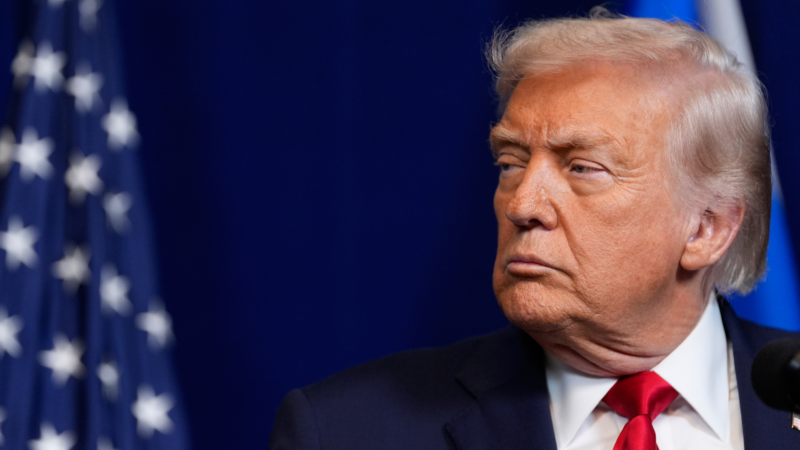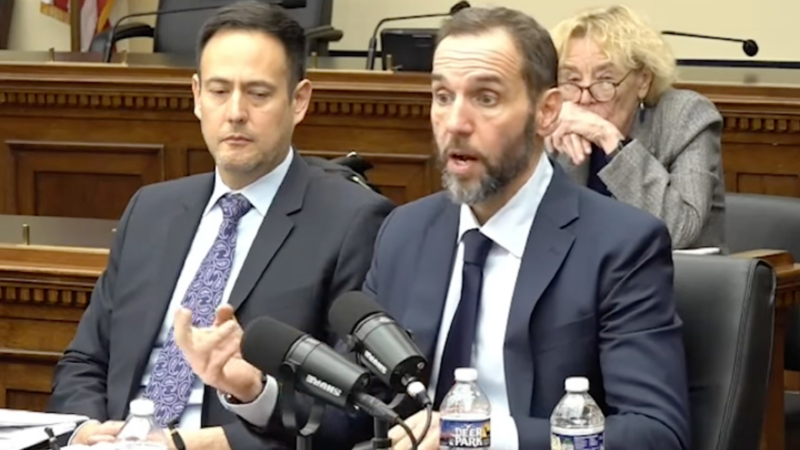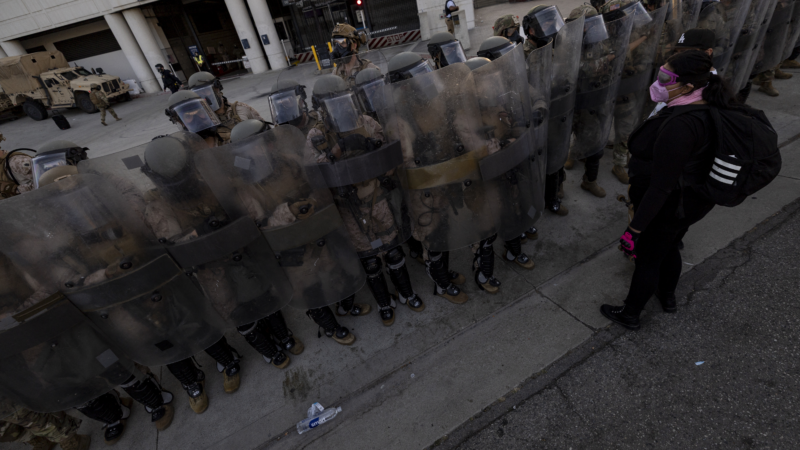European Union approves new retaliatory tariffs on the U.S.
All member countries of the European Union except Hungary voted Wednesday in favor of proposals that would impose tariffs on specific U.S. products sold into Europe, starting next week.
The vote came just hours before President Trump said on social media that he would pause tariffs on most countries for 90 days but would immediately hike tariffs on China to 125%.
The proposals were first published on Monday by the European Commission, the EU’s executive branch that coordinates trading policy for the bloc. They were adopted at a meeting in Brussels on Wednesday, hours after drastic 20% tariffs on almost all European goods took effect.
Wednesday’s EU vote came in response to an earlier set of U.S. measures announced by the Trump administration that slapped 25% tariffs on European steel and aluminum. The bloc said it was still working on its response to separate U.S. tariffs of 20% on European car imports.
Because the EU’s retaliatory tariffs have not gone into effect yet, the EU’s reciprocal tariff rate of 20% is being paused, according to a White House official who gave a clarification to NPR on background. The EU is being tariffed at the 10% baseline that went into effect on April 5, according to the White House official.
It remains unclear whether the EU member countries might lift their own set of sanctions following President Trump’s announcement.
EU retaliation measures
In its statement, published after the vote to approve new measures, the European Commission called the initial round of U.S. tariffs “unjustified and damaging, causing economic harm to both sides, as well as the global economy.”
European officials said these latest “countermeasures,” as they called them, could be suspended at any time, but only once the United States agrees to what they termed a “fair and balanced negotiated outcome.”
The precise details of the new European tariffs will be likely published at the start of next week, a commission spokesperson said, and are expected to target American motorcycles, poultry, fruit and wood, according to a draft copy of the list seen by Reuters.
If not canceled, they would take effect gradually, starting next Tuesday, with further rounds implemented in May and then the rest taking effect in December.
Europe escalates to negotiate
The European Union has shown it will retain some flexibility for its next moves, with the European Commission saying in its statement after the vote on Wednesday that the EU’s “clear preference” would be to engage in negotiations with the Trump administration to cement a trading agreement that is “balanced and mutually beneficial.”
French Trade Minister Laurent Saint-Martin reiterated this stance during a visit to Indonesia on Wednesday.
“We believe that a tariff war is harmful for everyone,” Saint-Martin said. “We must continue the work of dialogue and negotiation with the U.S. administration in order to achieve the most positive agenda possible.”
European stock markets closed lower on Wednesday, with indexes in London, Frankfurt and Paris all having fallen around 3% on the day, capping falls of more than 10% over the past week since the latest round of global tariffs was first announced by Trump.
Zohran Mamdani sworn in as New York City mayor, capping historic rise
Mayor Zohran Mamdani took the oath of office in New York City after midnight Thursday. The city's first Muslim mayor, a member of the Democratic Socialists of America, has promised to focus on affordability and fairness.
Rising from the ashes, a symbol of hope at the Rose Parade
Survivors of the Eaton and Palisades Fires find healing and community working on a Rose Parade float to honor the lives and communities lost in last year's wildfires.
The history behind the NYC subway station chosen for Mamdani’s swearing-in
The city shut down the station in 1945 on New Year's Eve. Eighty years later, it's a symbolic venue choice for the incoming mayor's private swearing-in ceremony.
U.S. military strikes 5 more alleged drug boats, killing 8
The U.S. military says it struck five alleged drug-smuggling boats over two days. The attacks killed eight people, while others jumped overboard and may have survived. U.S. Southern Command did not reveal where the attacks occurred.
Capitol riot ‘does not happen’ without Trump, Jack Smith told Congress
Former special counsel Jack Smith also described President Trump as the "most culpable and most responsible person" in the criminal conspiracy to overturn the 2020 election results, according to a transcript of Smith's closed-door interview with the House Judiciary Committee.
Trump will drop push for National Guard deployments in Chicago, LA and Portland, Ore.
Courts blocked troops from deploying in Chicago and Portland, Ore., and the Los Angeles deployment effectively ended after a judge blocked it earlier this month.







